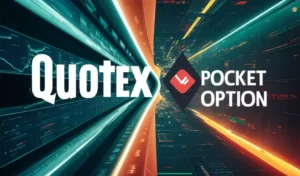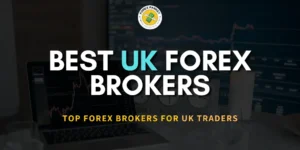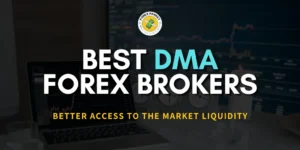In the fast-paced world of online trading, choosing the right Forex broker is crucial!
With thousands of options available, finding a regulated and trustworthy platform can be daunting.
According to a recent study by Investment Trends, over 60% of traders prioritize regulatory oversight when selecting a broker!
This comprehensive introduction delves into the realm of best-regulated Forex brokers, shedding light on the significance of regulatory bodies, investor protection measures, and the stringent criteria these brokers must meet.
We'll explore the key factors that distinguish the 11 best-regulated forex brokers from their unregulated counterparts!
Join us as we unravel the world of regulated Forex brokers, equipping you with the tools to make informed decisions and maximize your trading potential.
Top 11 Best Regulated Forex Brokers
| S/N | Regulated Forex Broker | Trading Platform | Minimum Deposit |
|---|---|---|---|
| 1 | EightCap | MetaTrader4 and MetaTrader5 | $100 |
| 2 | Plus500 | – | $100 |
| 3 | AvaTrade | WebTrader, AvaTradeGo, MT4, MT5 etc. | $100 |
| 4 | EXNESS | MetaTrader4 and MetaTrader5 | $200 |
| 5 | Pepperstone | TradingView, MetaTrader4 and MetaTrader5 etc | $0 |
| 6 | IG | MetaTrader4, IG Trading | $250 |
| 7 | InteractiveBrokers | Workstation etc. | $2,000 |
| 8 | FOREX.com | Web trading platform, MetaTrader4, etc. | $100 |
| 9 | OANDA | MetaTrader4, web-based trading platforms, etc. | $0 |
| 10 | IC Markets | MetaTrader4, MetaTrader5, and cTrader | $200 |
| 11 | eToro | – | $50 |
Let’s Unravel the Forex Broker| What is a Forex Broker all about?
For starters, what even is a Forex Broker?!
If you’re a beginner, then I’ve got you🤝And if you’re not, then skip this section🥴
Let’s go!
A Forex broker plays a pivotal role, acting as a bridge between traders and the global currency markets. Much like a real estate agent facilitates transactions between buyers and sellers of properties, a Forex broker serves as an intermediary, connecting traders with the opportunity to buy and sell currencies.
Imagine a bustling financial marketplace, where currencies from around the world are constantly being exchanged, their values fluctuating with every economic event and geopolitical development.
This is the realm of the foreign exchange market, a decentralized and highly liquid arena where trillions of dollars worth of currencies are traded daily. Navigating this complex landscape alone can be a daunting task, which is where Forex brokers come into play!
A Forex broker is a regulated financial institution that provides traders with access to the foreign exchange market through advanced trading platforms and tools. These brokers act as facilitators, executing buy and sell orders on behalf of their clients, while also offering a range of services such as research, analysis, and educational resources.
Forex brokers can be categorized into different types, each with its own unique characteristics and offerings. Some brokers specialize in specific markets or trading instruments, while others cater to a broader range of clients, from retail traders to institutional investors. Additionally, brokers may operate as market makers, setting their own prices and taking the opposite side of their client's trades, or as agency brokers, simply facilitating transactions between buyers and sellers.
In this ever-changing financial landscape, the role of a Forex broker is crucial, as they not only provide access to the markets but also ensure a secure and transparent trading environment. By adhering to strict regulatory guidelines and implementing robust risk management practices, reputable Forex brokers strive to protect the interests of their clients while fostering a fair and efficient trading ecosystem.
1. EightCap
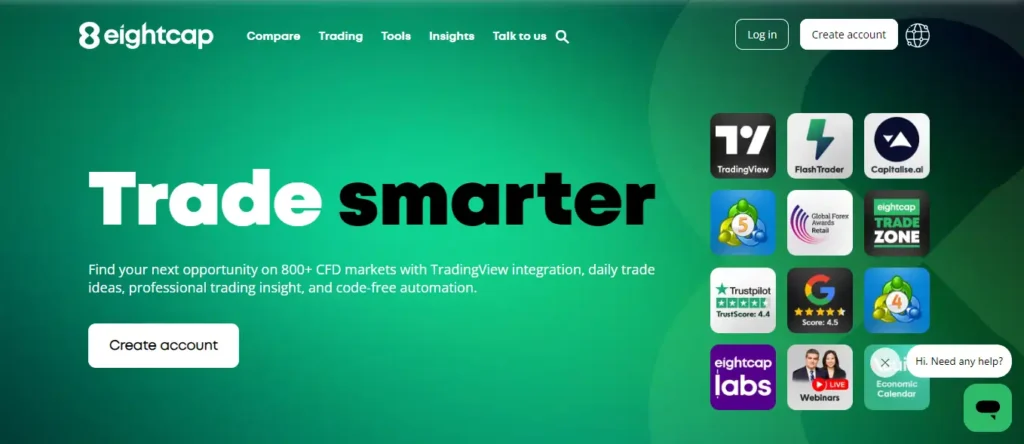
EightCap is a globally recognized forex and CFD broker, renowned for its commitment to providing exceptional financial services to clients worldwide.
Established in 2009 in Melbourne, Australia, the company has since expanded its operations across multiple jurisdictions, including the United Kingdom, Cyprus, and the Bahamas.
With a strong emphasis on transparency, EightCap adheres to stringent regulatory standards, ensuring a secure and fair trading environment for its diverse clientele.
EightCap's extensive range of tradable instruments, encompassing forex, indices, commodities, shares, and cryptocurrencies, provides ample opportunities for portfolio diversification and strategic trading decisions.
Key Features:
- Regulated by top-tier authorities (ASIC, FCA, CySEC)
- Tight spreads and competitive trading costs
- Advanced trading platforms (MT4, MT5, TradingView)
- Robust educational resources and market analysis
- Extensive range of tradable instruments, encompassing forex, indices, commodities, shares, and cryptocurrencies
Pricing:
- Minimum deposit: $100 (or equivalent)
- Spreads from 0 pips on forex pairs
- Commission: $7 per standard lot (Raw account)
Pros & Cons of EightCap
Pros
Cons
2. Plus500
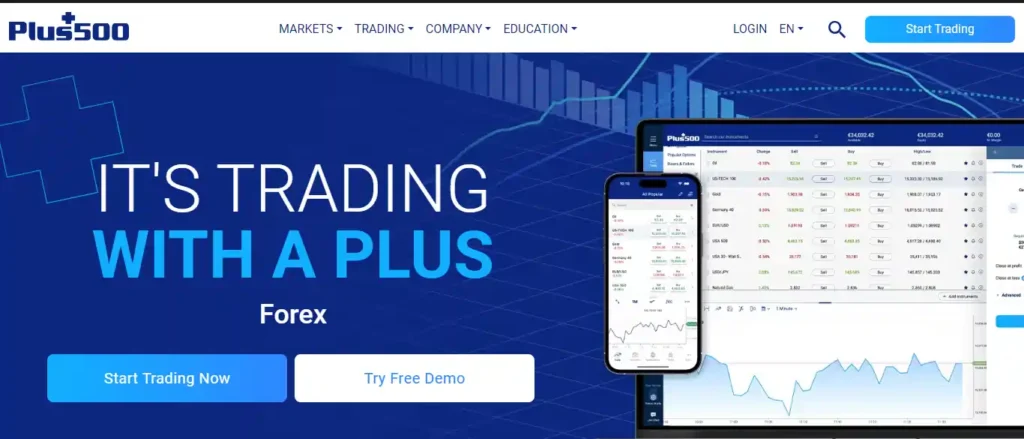
Plus500 is a globally renowned online trading platform that specializes in offering contracts for difference (CFDs) across a diverse range of financial instruments.
Established in 2008 and headquartered in Israel, the company has solidified its position as a trusted and regulated broker, serving clients in over 50 countries worldwide.
With a user-friendly interface and cutting-edge technology, Plus500 empowers traders to navigate dynamic markets with ease, providing access to real-time quotes, advanced analytical tools, and seamless order execution.
Key Features:
- Tradable instruments, including forex, stocks, commodities, indices, ETFs, and options
- Intuitive and mobile-friendly trading platforms with customizable layouts
- Robust risk management tools, including guaranteed stop-loss orders and negative balance protection
Pricing:
- Minimum deposit: $100 (or equivalent currency)
- No commissions; spreads built into buy/sell prices
- Currency conversion fee up to 0.7% for trades in different currencies than the account base
Pros & Cons of Plus500
Pros
Cons
3. AvaTrade
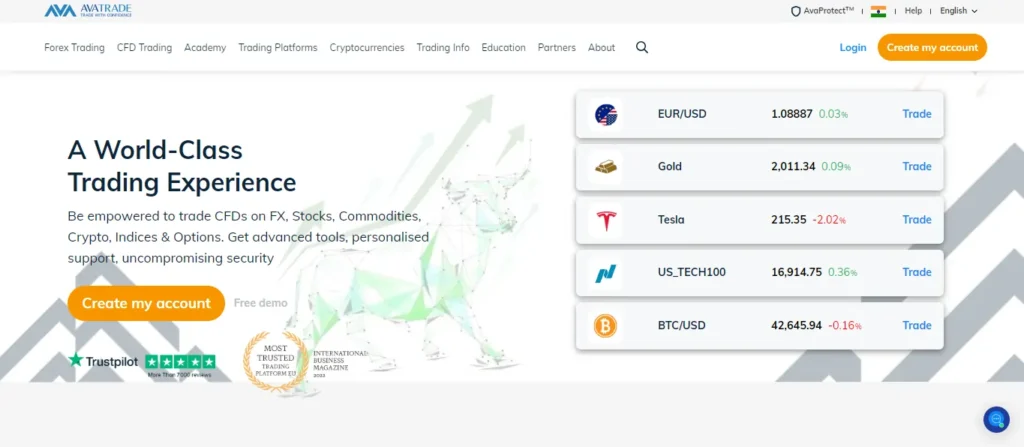
AvaTrade is a renowned online trading platform that has been empowering traders worldwide since its inception in 2006.
Headquartered in Dublin, Ireland, the broker offers a diverse range of trading instruments, including forex, stocks, commodities, indices, cryptocurrencies, and more.
With a strong emphasis on transparency and security, AvaTrade operates under multiple regulatory bodies, ensuring a safe and fair trading environment for its clients.
Key Features:
- Regulated by top-tier authorities (CBI, ASIC, FSCA, FSA, FFAJ, BVI FSC)
- Powerful trading platforms (MT4, MT5, WebTrader, AvaTradeGO)
- Extensive educational resources and market analysis tools
- Social and copy trading options (AvaSocial, ZuluTrade, DupliTrade)
- Trading instruments like forex, stocks, commodities, indices, cryptocurrencies, and more
Pricing:
- Minimum deposit: $100 (or equivalent)
- Spreads from 0.9 pips on major forex pairs
- Commission-free trading (spreads built into pricing)
Pros & Cons of AvaTrade
Pros
Cons
4. EXNESS
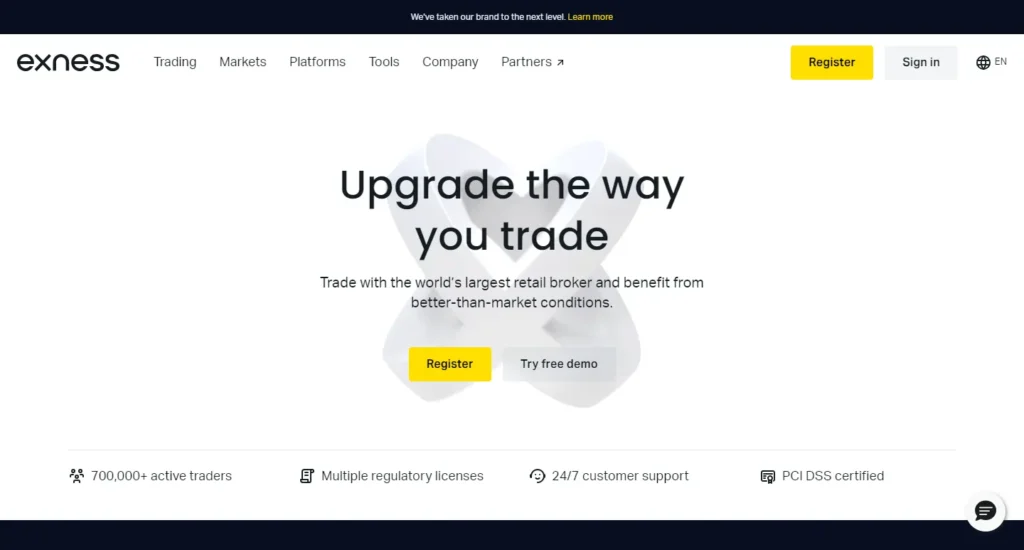
Exness is a global multi-asset broker that has been reshaping the online trading industry since its inception in 2008.
With a mission to provide a platform that truly benefits its clients, Exness has grown to become one of the largest retail brokers in the world, boasting over 700,000 active traders and a monthly trading volume exceeding $4 trillion.
The broker offers a diverse range of tradable instruments, catering to a wide array of trading preferences.
Key Features:
- Regulated by multiple top-tier authorities, including FCA, CySEC, and FSC Seychelles
- Proprietary Exness Terminal and support for MetaTrader 4/5 platforms
- Extensive educational resources and market analysis tools
- Social trading and copy trading options are available
- Access to trading instruments like forex, cryptocurrencies, stocks, indices, metals, and energies
Pricing:
- Minimum deposit: $200 for Professional accounts, lower for Standard accounts
- Spreads from 0 pips on forex pairs (Zero account)
- Commission: From $0.05 per lot (Raw Spread account)
Pros & Cons of Exness
Pros
Cons
5. Pepperstone

Pepperstone is a renowned online trading platform that has solidified its position as a trusted and regulated broker, serving clients across the globe.
Established in 2010 and headquartered in Melbourne, Australia, the company offers a diverse range of trading instruments.
With a strong emphasis on transparency and security, Pepperstone operates under multiple regulatory bodies, ensuring a safe and fair trading environment for its diverse clientele.
Key Features:
- Regulated by top-tier authorities (ASIC, FCA, CySEC, BaFin, DFSA, CMA, SCB)
- Powerful trading platforms (MT4, MT5, cTrader, TradingView)
- Extensive educational resources and market analysis tools
- Social and copy trading options (DupliTrade, ZuluTrade)
- Trading instruments like forex, cryptocurrencies, stocks, indices, metals, and energies
Pricing:
- Minimum deposit: $0
- Spreads from 0 pips on forex pairs (Razor account)
- Commission: From $3 per standard lot (Razor account)
Pros & Cons of Pepperstone
Pros
Cons
6. IG

IG is a leading global provider of online trading and investment services.
Founded in 1974, this company has been at the forefront of revolutionizing the financial markets, offering a diverse range of products and platforms tailored to meet the evolving needs of traders and investors worldwide.
With a strong emphasis on innovation and cutting-edge technology, IG has established itself as a trusted name in the industry, catering to both retail and institutional clients across multiple asset classes.
Key Features:
- Extensive product offerings like Forex, CFDs, Shares, Cryptocurrencies, Options, and more.
- Advanced trading platforms such as Web-based, mobile apps, and third-party integrations.
- Comprehensive research and analysis tools, including live market news and insights.
Pricing:
- The commission-based pricing model for share trading spreads for CFDs and Forex.
- Minimum deposit: AUD $300 for Australian clients.
Pros & Cons of IG
Pros
Cons
7. InteractiveBrokers
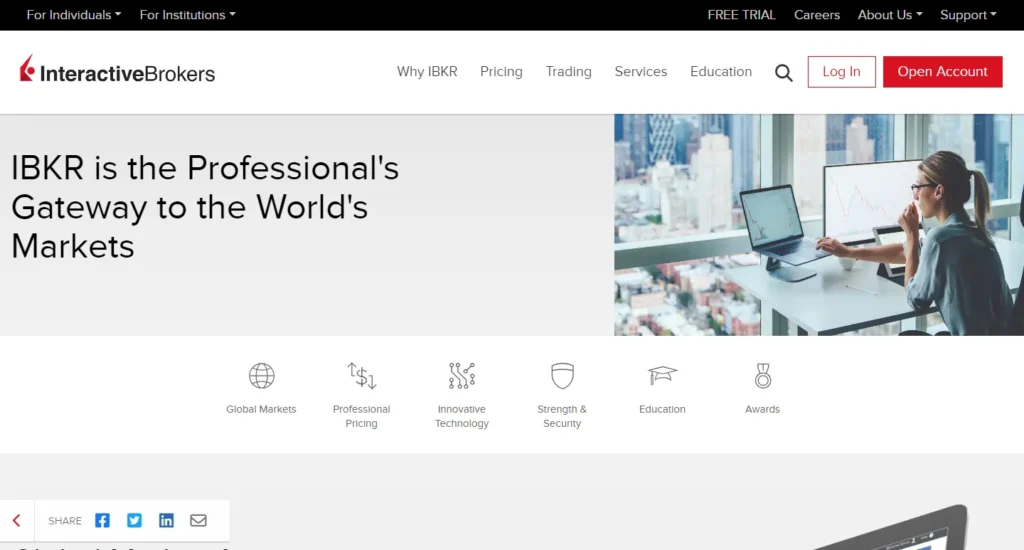
InteractiveBrokers is a renowned online brokerage firm that has been at the forefront of providing cutting-edge trading technology and execution services to clients worldwide.
Established in 1978, this US-based company has garnered a reputation for its innovative platforms, extensive product offerings, and commitment to delivering a seamless trading experience.
With a global presence and a diverse client base ranging from individual investors to institutional traders, InteractiveBrokers has solidified its position as a leader in the financial services industry.
Key Features:
- Comprehensive product suite such as Stocks, options, futures, forex, bonds, and more.
- Advanced trading platforms like Trader Workstation, Mobile Trader, and Web Trader.
- Powerful research and analysis tools, including real-time market data and news.
Pricing:
- Commission-based pricing model with low fees and tight spreads.
- Minimum deposit: $0 for cash accounts, and $2,000 for margin accounts.
Pros & Cons of InteractiveBrokers
Pros
Cons
8. FOREX.com
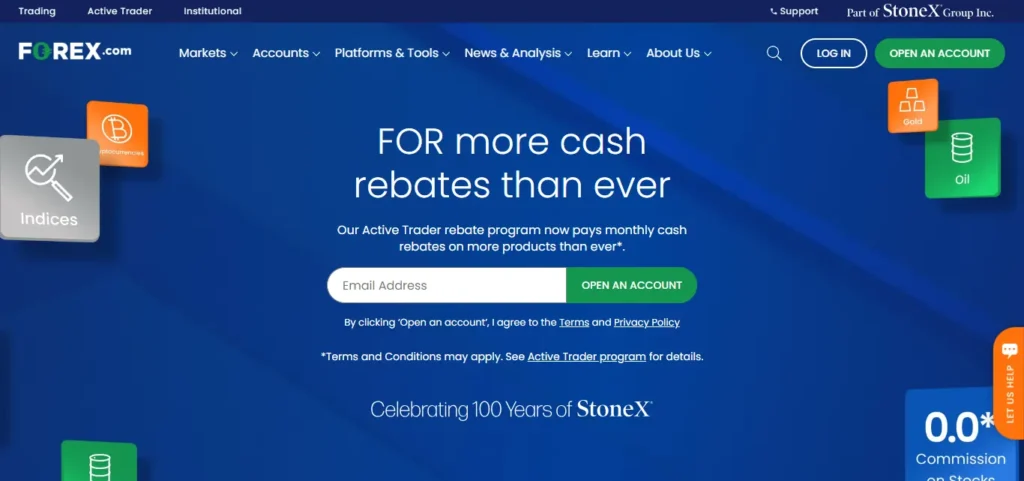
FOREX.com is a leading online forex and CFD trading platform, offering traders worldwide access to a diverse range of financial instruments.
Established in 2001, this reputable brokerage firm has built a solid reputation for its user-friendly trading platforms, competitive pricing, and unwavering commitment to transparency and client satisfaction.
With a strong focus on providing a seamless trading experience, FOREX.com caters to both novice and experienced traders, empowering them to navigate the dynamic world of currency trading with confidence.
Key Features:
- Extensive product offerings like Forex, CFDs on indices, commodities, and cryptocurrencies.
- Access to advanced trading platforms such as Web-based, mobile apps, and MetaTrader integration.
- Comprehensive research and analysis tools, including live market news and expert advisors.
Pricing:
- Commission-free trading with competitive spreads on forex and CFDs.
- Minimum deposit: £100, recommended deposit of £2,500 for better risk management.
Pros & Cons of FOREX.com
Pros
Cons
9. OANDA
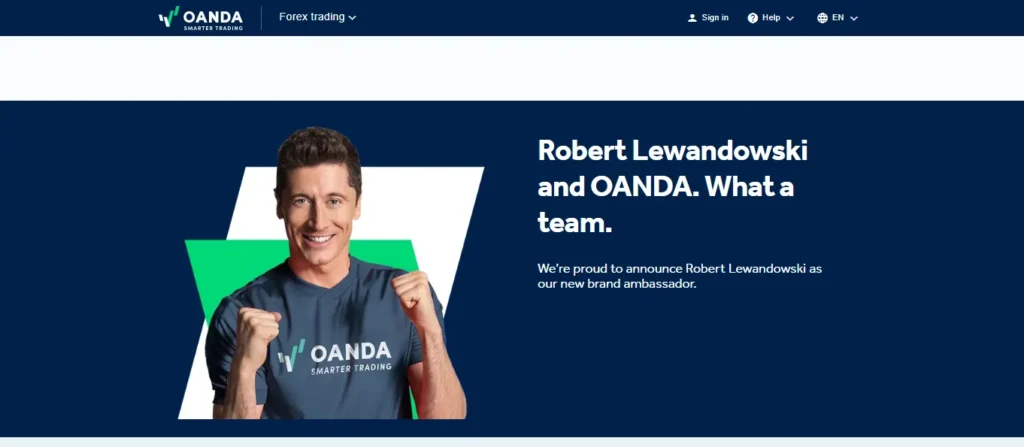
OANDA is a renowned online forex and CFD trading platform that has been at the forefront of the industry for over 25 years.
Founded in 1996, this innovative brokerage firm has built a solid reputation for its cutting-edge technology, transparent pricing, and unwavering commitment to providing an exceptional trading experience.
With a global presence and a diverse client base, OANDA empowers traders worldwide to navigate the dynamic currency markets with confidence and precision.
Key Features:
- Extensive product offering: Forex, CFDs on indices, commodities, and cryptocurrencies.
- Advanced trading platforms: fxTrade, MetaTrader 4, and mobile apps.
- Comprehensive research and analysis tools, including live market news and expert advisors.
Pricing:
- Commission-free trading with competitive spreads on forex and CFDs.
- No minimum deposit requirement, but a recommended deposit of $100 or more.
Pros & Cons of OANDA
Pros
Cons
10. IC Markets

IC Markets is a multi-regulated forex and CFD broker offering trading solutions for active traders, scalpers, and automated systems.
Established in 2007, the company provides access to global markets through its proprietary liquidity pool, ensuring tight spreads and fast execution speeds.
With a diverse range of trading platforms, including MetaTrader 4/5, cTrader, and TradingView, IC Markets caters to various trading styles and preferences.
Key Features:
- Raw Spreads from 0.0 pips on major FX pairs
- 2,250+ tradable instruments
- Equinix NY4 data center
- 24/7 customer support
Pricing:
- Commission: $3.5 per lot per side (Raw Spread account)
- Minimum Deposit: $200
Pros & Cons of IC Markets
Pros
Cons
11. eToro
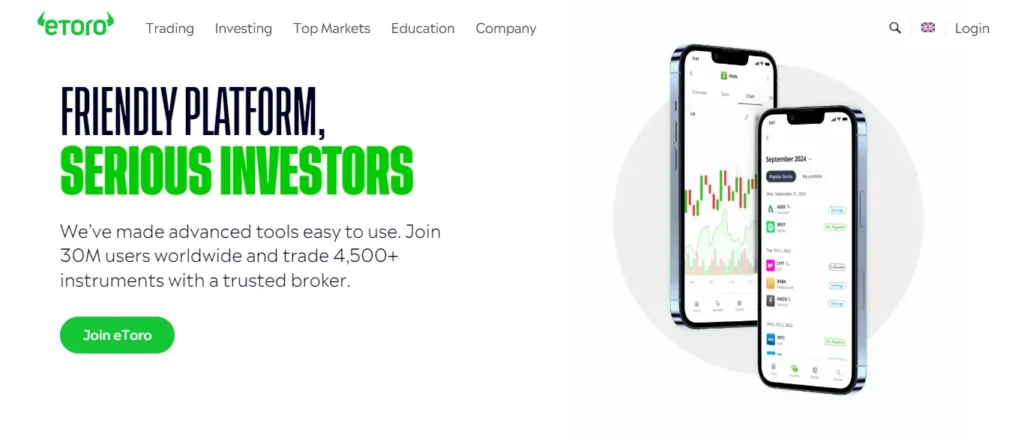
eToro is a multi-asset investment platform that combines traditional trading with social networking features.
Established in 2007, the company allows users to invest in various financial instruments, including stocks, cryptocurrencies, ETFs, and more. eToro's unique selling point is its social trading network, enabling users to interact, share insights, and automatically copy the trades of successful investors.
With a user-friendly interface and a focus on transparency, eToro aims to democratize the financial markets and make investing accessible to everyone.
Key Features:
- Social trading network with copy trading functionality
- A diverse range of tradable assets
- User-friendly platform with mobile apps
- Smart Portfolios and CopyPortfolios
Pricing:
- No commissions on stock and ETF trading
- Spreads on other assets (e.g., 1 pip on EUR/USD)
- Minimum deposit: $50 (or equivalent)
Pros & Cons of eToro
Pros
Cons
Benefits of Choosing a Regulated Forex Broker
Choosing a regulated forex broker offers several benefits that enhance the safety and reliability of your trading experience. Some of these benefits include:
- Transparent trading operations:
Regulated brokers are required to maintain transparency in their operations, ensuring that clients receive honest and fair services without any market manipulation.
- Safety of trader funds:
Regulated brokers must keep clients' funds in segregated accounts, separate from the company's funds. This ensures that your money is safe even if the broker goes bankrupt or faces financial difficulties.
- Recourse in case of a dispute:
Regulated brokers are required to have a working customer support desk and a real person ready to assist you. In case of any disputes, it is easier to file a claim and get assistance from regulated brokers.
- Protection from fraud:
Regulated brokers are subject to strict guidelines and standards set by regulatory bodies, which help protect traders from financial malpractices and fraudulent activities.
- Investor protection:
By choosing a regulated broker, you prioritize investor protection, ensuring a secure, transparent, and trustworthy trading environment
What are Demo Accounts?
Demo accounts are practice trading accounts offered by forex brokers that allow traders to simulate real trading conditions without risking any actual money. These accounts come preloaded with virtual funds, enabling users to familiarize themselves with the trading platform, test strategies, and gain experience in the forex market.
Forex brokers do provide demo accounts to help traders develop their skills and build confidence before transitioning to live trading. Some popular forex brokers offering demo accounts include FOREX.com and AvaTrade.
Key features of demo accounts:
- Virtual funds: Demo accounts come with virtual funds, allowing traders to practice trading without any financial risk.
- Real market conditions: Demo accounts simulate real-time market conditions, enabling traders to experience the dynamics of the forex market without putting their capital at risk.
- Skill development: Demo accounts provide an opportunity for traders to learn various trading tools, chart patterns, and technical indicators before moving on to live trading.
- Strategy testing: Traders can use demo accounts to test and refine their trading strategies in a risk-free environment.
FAQs on 11 Best Regulated Forex Brokers
How do forex brokers make money?
Forex brokers make money primarily through spreads, which is the difference between the bid and ask prices of a currency pair. Some brokers may also charge commissions or other fees for their services.
What should I consider when choosing a forex broker?
When choosing a forex broker, consider factors such as regulation, reputation, trading platforms, available markets, spreads and fees, customer support, and educational resources.
How do I know if a forex broker is regulated?
To determine if a forex broker is regulated, check for licenses from reputable regulatory bodies such as the Financial Conduct Authority (FCA), the National Futures Association (NFA), or the Australian Securities and Investments Commission (ASIC).
What are the most popular currency pairs in forex trading?
The most popular currency pairs in forex trading are EUR/USD, GBP/USD, USD/JPY, and USD/CHF, among others. These pairs are known as major currency pairs and typically have the tightest spreads and highest liquidity.
What is social/copy trading in forex?
Social/copy trading is a feature offered by some forex brokers that allows traders to automatically copy the trades of other successful traders. This can be a useful tool for beginners or those who lack the time or expertise to analyze the market themselves
What kind of tools do the best forex brokers offer?
The best forex brokers offer a variety of tools, such as ranking tables, economic calendars, market analysis, and educational resources.
What questions should I ask a forex broker before choosing one?
Some important questions to ask a forex broker include inquiring about their service suite, company stability, regulation, trading platforms, account types, and customer support.
Conclusion
In conclusion, selecting a well-regulated forex broker is crucial for a secure and successful trading experience.
The best-regulated forex brokers, such as EightCap and Plus500 US (p.s. my favorites!), prioritize transparency, adhere to strict safety requirements, and offer competitive fees.
These brokers provide a diverse range of trading platforms, catering to various trading styles and preferences.
With fast execution speeds, a broad range of tradable instruments, and strong customer support, these top-tier brokers empower traders to navigate the dynamic forex market with confidence.
By choosing a reputable and regulated broker, traders can focus on honing their strategies and capitalizing on market opportunities, knowing that their investments are protected by stringent regulatory standards.

